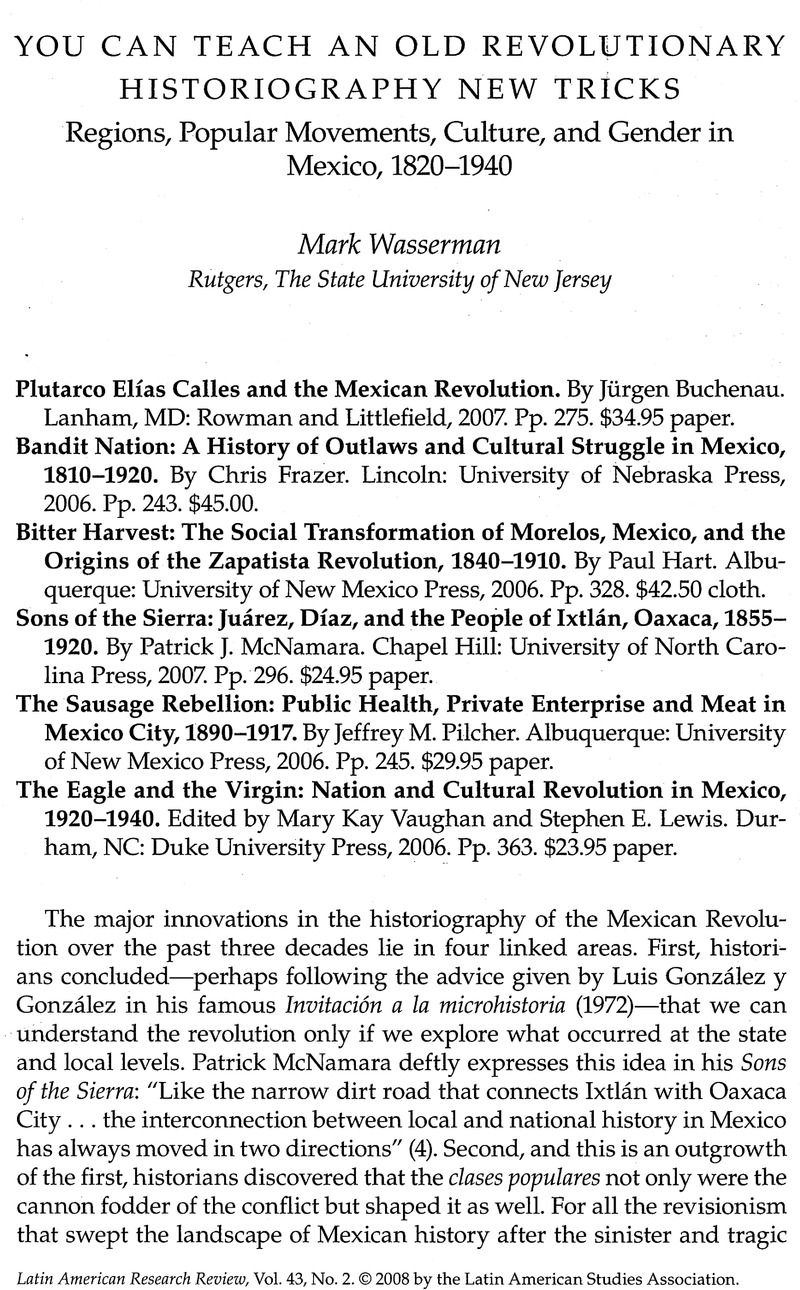Article contents
You Can Teach an Old Revolutionary Historiography New Tricks: Regions, Popular Movements, Culture, and Gender in Mexico, 1820–1940
Review products
Published online by Cambridge University Press: 05 September 2022
Abstract

- Type
- Review Essays
- Information
- Copyright
- Copyright © 2008 by the University of Texas Press
References
1. Richard Morse, “The Heritage of Latin America,” in Louis Hartz, ed., The Founding of New Societies (New York: Harcourt, Brace, and World, 1964), 165. In Morse's scheme, the periods were indigenous, to 1520; Spanish, 1520 to 1760; colonial, 1760 to 1920; and national, since 1920.
2. Peter Guardino offers two excellent examples: Peasants, Politics, and the Formation of Mexico's National State. Guerrero, 1800–1857 (Stanford, CA: Stanford University Press, 1996), and The Time of Liberty: Popular Political Culture in Oaxaca, 1750–1850 (Durham, NC: Duke University Press, 2005).
3. Terry Rugeley, Yucatan's Maya Peasantry and the Origins of the Caste War (Austin: University of Texas Press, 1996).
4. Frazer is not concerned so much with the social origins of banditry or the composition of bandit gangs (there is a discussion of these on 39–43) as with the stories that people told about bandits. “Elite discourse on banditry intertwined with the struggle to create a durable state and national identity in postcolonial Mexico,” he maintains, and “the elite's legal discourse on banditry was therefore a core element in state formation” (21).
5. Authoritarian is a far more appropriate term than populist. Hated far and wide, ill tempered, and taciturn, Calles hardly fit the mold of the charismatic leaders generally associated with populism, such as Juan Domingo Perón in Argentina or Lázaro Cárdenas in Mexico. Historians have often mislabeled as populists leaders of little or no attraction, who pushed policies that benefited the working and middle classes and peasants. Thus, Douglas Richmond has insisted that Venustiano Carranza was a populist; others have written similarly about Hipólito Yrigoyen in Argentina in the 1910s and Getúlio Vargas in Brazil in the 1930s. Neither delivered very much for their purported constituencies.
6. llene O'Malley, The Myth of the Revolution. Hero Cults and the Institutionalization of the Mexican State, 1920–1940 (New York: Greenwood Press, 1986).
- 2
- Cited by




